Andrew Wilson - Metal Roofing Made Easy - PODCAST TRANSCRIPT
April 30, 2025 at 11:49 a.m.Editor's note: The following is the transcript of a live interview with Central States’ Vice President of Innovation and Product Engineering, Andrew Wilson. You can read the interview below or listen to the podcast.
Intro: Welcome to Roofing Road Trips, the podcast that takes you on a thrilling journey across the world of roofing. From fascinating interviews with roofing experts to on-the-road adventures, we'll uncover the stories, innovations and challenges that shape the rooftops over our heads. So fasten your seat belts and join us as we embark on this exciting roofing road trip.
Heidi J. Ellsworth: Hello and welcome to another Roofing Road Trips from Roofer's Coffee Shop. My name is Heidi Ellsworth and we are here today to talk about one of the fastest growing products in the roofing industry and that is metal. And metal is ageless. We've seen metal roofs, beautiful metal roofs throughout the ages and today they are more popular and demanded than ever. We were so excited to have our friends at Central States join us. And Andrew Wilson, thank you so much for being here. Vice President of Innovation and Product Engineering. Welcome.
Andrew Wilson: Thank you Heidi. Appreciate it. It's good to be here.
Heidi J. Ellsworth: I have to tell you, metal is hot and I say that on all levels. It is wild what we're seeing out there in the market. But let's start first with introductions. So if you could introduce yourself and tell us a little bit about what you do with Central States.
Andrew Wilson: You bet. You bet. So I've been with Central States now for about seven years. I'm obviously not from the USA. I came over in 2001 on a three-year assignment and I'm still here. So I worked in the automotive industry for about 20 years and then moved into construction about seven years ago. Really, really enjoying it. Love the industry. A lot more fun to work in construction than it is to work in automotive. I'll say that for sure.
Heidi J. Ellsworth: We think so too.
Andrew Wilson: Much better people and much more fun to do it. So yeah, I've been with Central State as I said for several years in a lot of different roles, logistics, purchasing, quality, operations, all sorts of different things. My background is as a mechanical engineer. And so, now in the role I find myself at Central States, I'm responsible for innovation. So trying to look at the next things that are coming up, trying to find better ways to do what we do, trying to make sure that we've got the right product range to meet our customer's needs and just trying to generally drive things forward a little bit.
Heidi J. Ellsworth: That's excellent, that's excellent. Well, why don't you tell us just a little bit about Central States, a little bit of its history and your footprint. I don't know if everyone knows just how big you all are.
Andrew Wilson: Yeah, so Central States, I'm obviously very biased, but it's a really cool company. So we are a hundred percent employee owned. We've been around about just over 35 years now, I think. Started off in a little shed up the road in Rogers, Arkansas and our founder saw the value in employee ownership and we became an ESOP probably, I don't know, 10 or 15 years ago now. And we've just been on a really steep growth trajectory, I would say, for many, many years now. We have, I think, 11 manufacturing locations now, a couple of other non-manufacturing locations and we've got two more that will be opening within the next three to four months. So we keep growing. We've got a goal of being pretty close to our customers. We know our customers pretty well. They know us. We have pretty long-term relationships with most of our customers and we're really here to try and help them grow their business. So we talk about making raving fans, the more we can do to help them grow their business, the better for all of us. So that's really in our DNA.
Heidi J. Ellsworth: Love that. And that is so true and it kind of goes back to what you said about working in construction. We're all in this together and when you find good partners, it's amazing how fast things can grow. And when you really talk about when you were seeing the growth, I would love your insights on some of the key factors that are contributing to the growth of metal in construction.
Andrew Wilson: Yeah, I think I could probably distill it down, Heidi, into consumers, customers, whether that's homeowners or people that have a building that they are owning or responsible for are getting more and more educated about the benefits of metal. I think the benefits are pretty clear. If you look at durability, you look at sustainability, you look at the options that you have and just the performance of a roof in general, metal has an awful lot to offer. And I think as we've done a better job as an industry of getting the message out there, making people aware of it and allowing them to make good and informed choices, it's pretty easy to see why people would choose a metal roof over some of the competitive products that are out there.
Heidi J. Ellsworth: Well and also it just feels like a lot of factors are coming together too, to your point for those homeowners and building owners, weather and what's happening around fire. We just are seeing traditional building being challenged in durability.
Andrew Wilson: There's been a lot of press obviously about some of the big events that have happened over the last several years. Some of the fires obviously in Hawaii and then California more recently. And then obviously we see more and more severe weather events, whether it's hail, high winds, tornadoes, hurricanes, et cetera. And I think there's more and more awareness of the improved performance you can get out of a metal roof. We've all seen photographs of buildings where there've been these terrible storms or fires have gone through and you'll see a metal building that's survived. There's more to it than just it being a metal building for sure. It has to be built correctly and be structurally sound, etc. But the fact that it is metal does give it some really big advantages over other products.
Andrew Wilson: And then I think the other side of it as well, again, when you go back to education, people are more and more aware about some of the choices they're make and about sustainability, about recyclability, about being good stewards of the earth and whether that's through the fact that buildings last longer or whether it's because they're more energy efficient or it's just the fact there's no need to go and find landfill for products at the end of their life. These are all things that are becoming more and more important to consumers as they get more and more educated.
Heidi J. Ellsworth: Yeah, I agree. And especially as we look at this next generation, we have a very young, they care a lot more I think about sustainability and long-term decisions that are going to last. One of the things that I think is so really unique and cool about Central States too is you are across the board. This isn't just about roofing, this is also about siding and like you just said, metal buildings, metal doors, really kind of putting together architecturally some real solutions for all six sides of the building.
Andrew Wilson: Yeah, absolutely. So we grew up, I would say, in the metal roofing world, that was where we started. And then, obviously that's now expanded into some more siding products. Some of the metal roofing panels are equally at home as a siding product, but then we have things like Borden Barton that I think provide a lot of maybe new, more modern aesthetic that people like. Some of the wood grain finishes that we offer are really, you can't tell they're not wood. I mean they're really that good. It's really quite impressive. And then, obviously, as you mentioned, the buildings, et cetera. So we're in storage, we're in PMB, we're in several different spaces and I think metal just has a lot to offer in all of them.
Heidi J. Ellsworth: It really does. So you know what, let's talk just a little bit about looking in the past, there are contractors who have been out there who maybe have started their business with more traditional products, whether that's roofing, siding, whatever that may be and have a little bit of a fear of getting into metal. But you have really brought some cool insights on that it's easier to master than some think. Can you share some of your thoughts on that? It's not really that hard to get into metal, it's just different.
Andrew Wilson: Yeah. I think that there is a big psychological barrier that contractors and others just need to be prepared to overcome. For sure, it's different driving up to a, if you think residential, driving up to a home and unloading a bunch of shingles and throwing them up, it's a very different proposition to do it in metal. But I think a lot of the practices when it comes to flashing and how to seal, make buildings watertight, the same logic if you like, the same approach that you use in many buildings still carries over the metal. So I think a lot of it comes down to just having a good partner that you can work with, find someone that can help you on those first steps, someone who can somewhat hold your hand a little bit and just help you through that learning curve. But we've got lots of contractors that we've worked with who within a couple of jobs feel pretty comfortable and they see big benefits.
Andrew Wilson: They know that they can go to a customer and they can sell that customer the benefits of a metal roof over a different product. They're able to go in and really explain why the homeowner would want a metal roof over some of the other products and do a good job of explaining the benefits and ultimately winning the customer's trust and confidence. But I think for sure, you have to do things differently. You have to obviously measure the building a little more precisely than what you would do with shingle. But I think even shingles, so we don't today offer a metal shingle offering, but I know that that's a good entry way for people into metal roofing as well. It's a little bit of a smaller leap from maybe a traditional panel, but none of it's too difficult. It's just having that confidence, having a partner that you can work with who can give you advice.
Andrew Wilson: One of the things we have in a lot of our footprint, we have what we call metal central. So we have a retail store that you can go in, you can walk in, you can talk to guys behind the counter. Many of them have been in roofing for a long time and they can answer questions about how would you detail this, how would you do this? So they're there to help and happy to help and can provide real world experience on that. And then I think the other side of it, Heidi, would be things like the MCA, Metal Construction Association or Metal Roofers Association, NRCA. There's a lot of bodies out there that are offering a lot of educational materials that can just help you to know what questions to ask, identify some of the pitfalls and things to be wary of, but it's really not as bad as people, I think, sometimes think it's going to be. It's really not.
Heidi J. Ellsworth: I agree with you and I really am seeing that happen across the board where contractors are making those first steps. They may go to a metal tile, but then they realize not far after that standing seam, exposed, fastener, these are all roofing types that actually, once they get the training and find a good partner, to your point, really can make a difference in differentiating their business and adding new income. When you are looking at different types of building projects, whether it's commercial or residential, where are you really seeing the rise in metal for the different architectures, different segments of the market?
Andrew Wilson: I think we're seeing it across the board. I do, I don't think there's any areas that we're not seeing increased interest. I think residential for sure has been an area, I would say of significant growth. It's been, at least in our business, most of the customers that we've worked with over the years have historically done a lot more industrial commercial type projects. We've seen more and more residential activity ourselves in the last few years. Residential is a big market, obviously. It's dominated today by asphalt and obviously. That's where we in, the metal industry, I feel like, have a big advantage over asphalt.
Andrew Wilson: Asphalt is working very hard to try and improve their sustainability messaging and trying to make the products tell a better story, let's say. But I think at the end of the day, metal just has that big advantage. The durability is so much better. A metal roof is going to last a lot longer than an asphalt roof, even without severe weather it's going to last longer. I think a lot of the stigma perhaps of metal over the years has been 30, 40 years ago, a "tin roof", in quotes here, didn't age so well. The products today are not like your grandfather's tin roof. They are very, very different. They have paint systems that are designed and manufactured to last decades without any real degradation and they will keep the rain off. And so, I think that's a big thing. And I think the cost of insurance is going up for sure.
Andrew Wilson: The insurance companies are very, very tuned into not wanting to replace roofs every few years. And I know my previous home I had an asphalt roof and we had to have it replaced and it's not fun having someone come in and tear apart your roof and deal with all the cleanup. So it's not just the cost of it, but the inconvenience that you get from having to take an older farm from a new one on. It's just a pain that no one enjoys it. These are all things that can make a difference. And I think if you go to commercial industrial side, there's products out there as well where you can retrofit an existing roof with a metal roof over the top of it without having to take the roof off that's there. So even disturb the operation that's going on inside the building, you can continue business as normal while a roof's being put on that will last 40, 50, 60, 70 years and you don't have to worry about it again. You can sleep easy.
Heidi J. Ellsworth: And those retrofits can really help the structure of the building too.
Andrew Wilson: Yeah, absolutely. You can bring it up to modern codes that it's going to be a more robust building than it was before. It's going to be able to withstand higher wind loads than it could before. There's just so many benefits to do that.
Heidi J. Ellsworth: It really is. Can you talk a little bit about all of the different building materials that Central States is offering and how you kind of fit into all these markets we just talked about?
Andrew Wilson: Yeah, so we offer exposed fastener panels. Again, that's kind of where we started off. So I'll call them agricultural, I don't think that's probably not doing them a real service to call them that, but that's where they started off. So exposed fastener panels, several different profiles for different looks. They tend to be quite regional in terms of who likes that specific look. But we have a number of different profiles. And then, we have obviously the standing seam, we call it Horizon Lock or H-Lock, which is a kind of, I would say, residential standing seam product over solid decking all the way through to trapezoidal type profiles for more structural roofing solutions. So we've got something I think that covers pretty much all the bases. And obviously, in my role now, I'm always looking to see what else we can do differently, what can we add? How do we improve the product offering so that we can fill their niches that maybe haven't yet been serviced or that someone just has a particular itch that they need a scratch. We want to try and help them do that.
Heidi J. Ellsworth: Well, it's interesting. I know a number of roofing contractors who have gone into the pre-engineered metal buildings. It seems a natural shift for them because then they, of course, they're still doing the siding and the roofing and everything else and they're putting those buildings together. So how do you see that really, I mean Central States can help contractors start doing more metal buildings if they're interested in it just because of your breadth of offerings?
Andrew Wilson: Yeah, so we have a whole business unit that's really focused on the PMB side of the industry. One of the plants that I mentioned earlier that we're about to open is a PMB manufacturing plant. So we'll be able to do everything from beginning to end at that point. But we've already had, we've had for several years now the enhanced design capabilities where we've done designs four customers and we'll help source the frames so they can put the whole package up.
Andrew Wilson: So we've upgraded quite a lot in terms of our know-how and talent within the company in the last several years because we want to try and help people be more successful. It's what it's about. If our customers win, then we win. So we're really, really focused on trying to give them a good experience. We have some online design tools you can use, whether that's for storage or PMB type building. You can go design a product yourself and get a quote in a matter of a few minutes. So yeah, we want to partner, we want to try and be in it for the long run and help people succeed and grow their business.
Heidi J. Ellsworth: And you're very focused on training also, really getting out there and helping those contractors. Whether it's directly Central States or through, like you said, your retail arm or even with the pre-engineered buildings.
Andrew Wilson: We've seen more and more opportunities to help train more and more people to do this. So as the demand has grown, obviously the demand is outstripping the ability of people to find the trained resources to do it. So we have obviously several guides online. We have some videos that people can find on YouTube and then we're working with several of the industry bodies to try and put together some more training to help. We see that's something that's going to get more and more important. We're not there yet. I would say, Heidi, we know that it's an area for us to keep getting better and we want to keep doing that. We're going to be very, very aggressive about that over the next few months and years.
Heidi J. Ellsworth: Yeah, that's what I'm seeing too, across the board, as an industry, everyone is stepping up. So we know we have contractors who are already doing metal roofs, already doing metal siding who actually are moving into metal buildings, which is pretty exciting. But we have a lot of contractors out there who are doing more traditional, whether it's asphalt or more traditional roofing and who want to get into metal. So for those newcomers to the metal roofing industry, what are some of the most important things for them to consider while they're selecting these new products or metal products to start installing?
Andrew Wilson: I think the first thing is for them to get educated and they need to find a partner that they can talk to who can help them understand what are the different options out there. A lot of people think the differences between the different panel types is purely cosmetic and it's not the case. There's a lot more to it than that. So finding a partner within our industry who can actually give them some advice on what's the right solution for the customer in different situations. So ultimately we want to make sure the end customer gets the product they need and they want. It's not good for the industry if we start selling them the products they don't really need or we put a roof on that's not going to work effectively for them. That's something we all should be doing our best to avoid.
Andrew Wilson: So I think educating the contractors, providing them with a place where they can come and ask questions, having that relationship with your partner supplier where you know that they've got your best interest at heart and they're not just trying to sell you metal, that they're around for the long run and that they really want your success to be their success. I think that's really important. Warranty is obviously very important, knowing that you've got a warranty that's going to last longer than maybe your business is a big deal. So I'd say that's an important thing. And having someone that can help you by answering questions when you have something that you've not seen before, there are going to be lots of situations where you go through a training program or you read the manuals or you watch the videos and you come across a situation where the flashing is just not quite the same as you needed it to be. And having someone you can call to ask and just get that guidance, I think, is really important.
Heidi J. Ellsworth: It's all about building those relationships. And the thing I love about Central States too is you are building all these great relationships within the industry too, with Metal Roofing Alliance, with the Metal Construction Association. You have a lot of different groups out there that you all are working with, Sherwin-Williams and Metal View, that I think everyone's coming together to really make this accessible to all contractors, which I love. I love watching that.
Andrew Wilson: Yeah. I would say our enemies are not the guys that are making metal roofs, it's the guys that make other products. So we're all frenemies. We compete against each other for sure. But, we're all about trying to increase metal sales in general in the industry and put what we think is a better product on more people's roofs.
Heidi J. Ellsworth: Making it more accessible to all contractors is really what I've seen and that's been important. So as we're looking at this for contractors, any advice? I know we've already talked about build a relationship with your manufacturer, build a relationship with your distributor, but any other pieces of advice how they can successfully build their business by adding more metal to it?
Andrew Wilson: Yeah. I said it before and I'll say it again. I think the most important thing they can do is get educated on their products. Because when they go to visit with a customer, whatever the line of work it is, they need to be able to explain why metal is a better solution for this specific case. And if there's reasons that a different products better, then they should be selling that product. But if they understand the benefits of the particular roofing system that they're trying to sell to the customer and they can speak intelligently with good information about why this is the right choice and what this is going to do that something else isn't going to do, then that's the thing that's going to get them over the line and hopefully win that business.
Andrew Wilson: If you talk about residential construction, when people are putting a metal roof on their home, it's like buying a car. It's not a small investment, but it's a good investment. And I think being able to explain why it's a good investment is the most important thing. That's the way that they will grow their business and get more people involved.
Heidi J. Ellsworth: Yeah, I agree. I agree. And really having the heart of your customers in mind so that you're giving them the best information and bringing them the best resources. I love that. So as contractors out there listening to this and they want to get started or build a relationship with Central States, how do they go about doing that?
Andrew Wilson: Look us up online. We've got a website that I think gives a lot of information. We've got, as I said, a pretty good footprint, a lot of different locations. You can reach out to our different locations and we'll be able to put you in touch with the right people that can help you along that journey. One of our core values, I guess I'd say, is trying to help our customers grow their business. So if there's things we can do to help them do that, whether that's through marketing materials, through training, through changing what we do, if there's things that we do that don't help you with your business, we want to hear about that because we want to try and do a better job for you.
Andrew Wilson: You're not going to be a faceless name on an order sheet. We're going to try and build your business from the ground up and help you. So yeah, I'd say reach out. We're obviously at a lot of the trade shows. We're at different events as well. So we were down at IRE a few weeks ago and we had a lot of people stop by there. It was great to hear so many contractors that were not doing a lot of metal come and talk to us and see the small display we had and just ask questions and we can connect them with the different people around the country that can help them. So yeah, we want to be there to help. We want to help them grow their business.
Heidi J. Ellsworth: I love it. And really it comes back to what you so well coined is it's not difficult, it's just different. And so, taking the time to really understand metal can really be a solution to differentiating your business.
Andrew Wilson: Totally, totally. Yeah. And as you're doing your first few projects, if you need help to do it, we're there to try and help. And one of the things I mentioned before I love about the industry is people are generally very, very open. They're very warm, they're very friendly. So a lot of times, even competitors are going to help each other because they want to grow the industry as a whole. And I think it's the same is true in the contractor world. There's a lot of people out there that are very willing to offer advice. You just have to ask for it. And generally speaking, you'll get good advice.
Heidi J. Ellsworth: Getting involved with companies like Central States, getting involved with associations like Metal Roofing Alliance and Metal Construction Association, all of those can help you figure out how to add metal to your business and really take it to the whole new level because all the stats, all of the data is pointing to continued growth when it comes to metal.
Andrew Wilson: And I think that comes down to that value proposition. Again, the product itself has got so many things going for it that it's not hard to sell it's just different. You've just got to know what to sell and why you're selling it and what the value proposition is and then I think people can make the right decision for themselves
Heidi J. Ellsworth: As they do that. Andrew, thank you so much. This has been great. I love your take on it. I love what you guys are doing over there. Thank you so much for spending this time on this Roofing Road Trip with me today.
Andrew Wilson: Appreciate it, Heidi. Thank you so much for the opportunity.
Heidi J. Ellsworth: Thank you. And thank you all for listening. Great information to grow your business in 2025, please check out the central state's directory on Roofers Coffee Shop and Metal Coffee Shop. They have information, contractor programs, training and there's a lot more coming down the road. So stay tuned and keep checking in. Also, check out all of our podcasts under the read list and watch Navigation under Podcasts. Be sure to subscribe and set those notifications so you don't miss a single episode. We'll be seeing you next time on Roofing Road Trips.
Outro: If you've enjoyed the ride, don't forget to hit that subscribe button and join us on every roofing adventure. Make sure to visit RoofersCoffeeshop.com to learn more. Thanks for tuning in and we'll catch you on the next Roofing Road Trip.













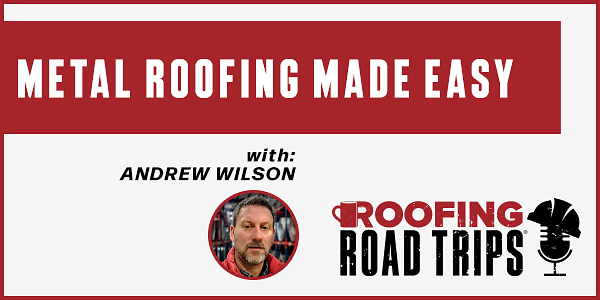
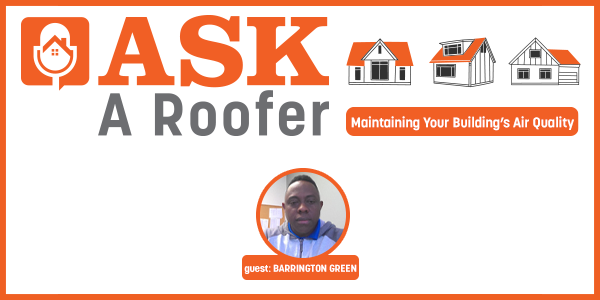
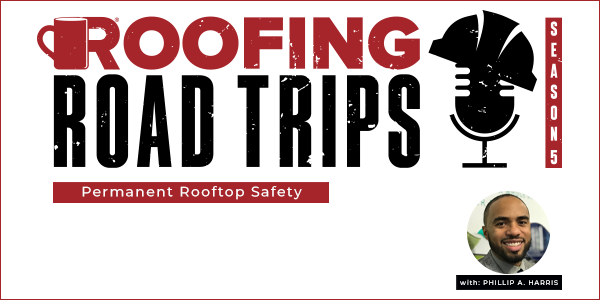
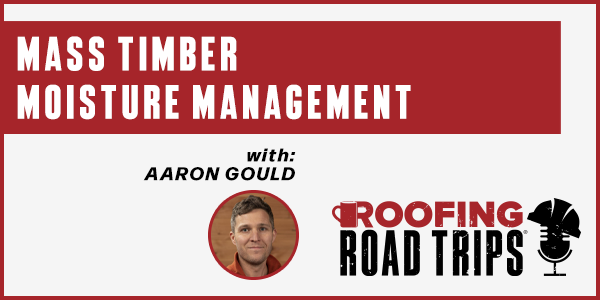

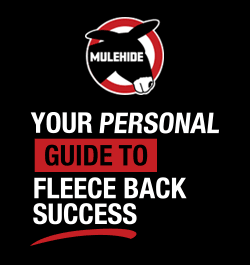



Comments
Leave a Reply
Have an account? Login to leave a comment!
Sign In